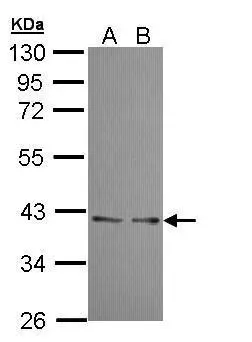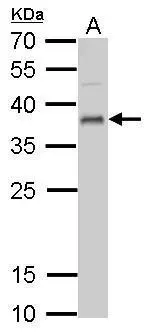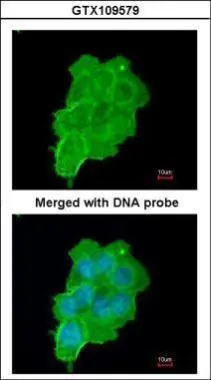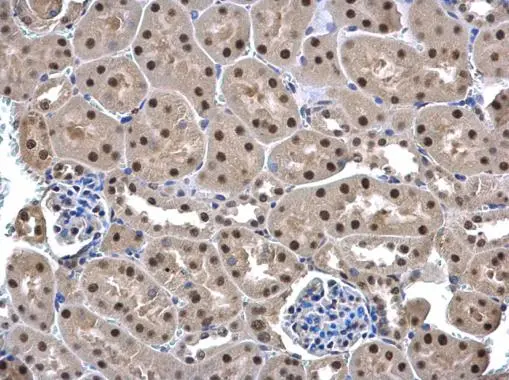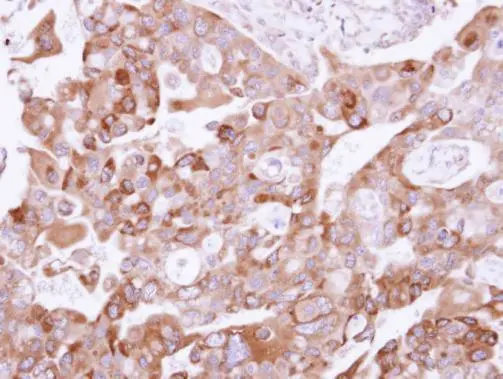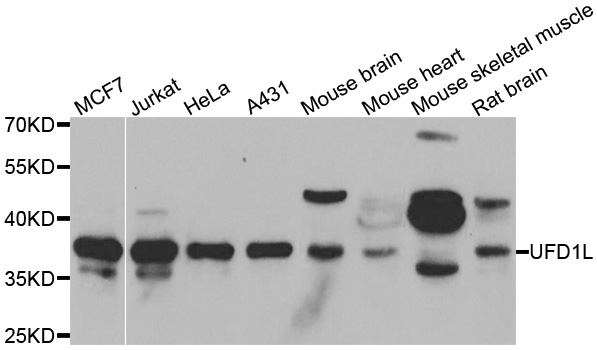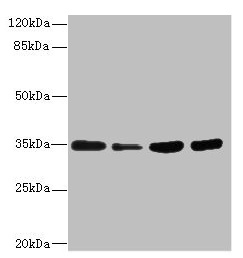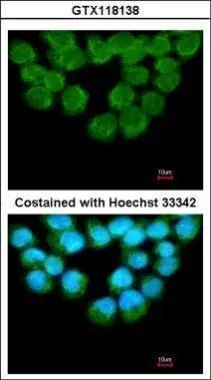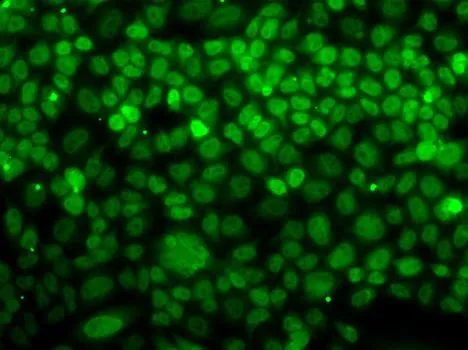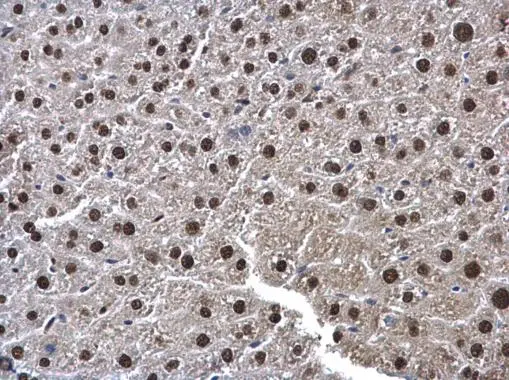
UFD1L antibody detects UFD1L protein at cytoplasm and nucleus in mouse liver by immunohistochemical analysis. Sample: Paraffin-embedded mouse liver. UFD1L antibody (GTX109579) diluted at 1:500.
Antigen Retrieval: Citrate buffer, pH 6.0, 15 min
UFD1L antibody
GTX109579
ApplicationsImmunoFluorescence, Western Blot, ImmunoCytoChemistry, ImmunoHistoChemistry, ImmunoHistoChemistry Paraffin
Product group Antibodies
ReactivityHuman, Mouse
TargetUFD1
Overview
- SupplierGeneTex
- Product NameUFD1L antibody
- Delivery Days Customer9
- Application Supplier NoteWB: 1:5000-1:20000. ICC/IF: 1:100-1:1000. IHC-P: 1:100-1:1000. *Optimal dilutions/concentrations should be determined by the researcher.Not tested in other applications.
- ApplicationsImmunoFluorescence, Western Blot, ImmunoCytoChemistry, ImmunoHistoChemistry, ImmunoHistoChemistry Paraffin
- CertificationResearch Use Only
- ClonalityPolyclonal
- Concentration1.02 mg/ml
- ConjugateUnconjugated
- Gene ID7353
- Target nameUFD1
- Target descriptionubiquitin recognition factor in ER associated degradation 1
- Target synonymsUFD1L, ubiquitin recognition factor in ER-associated degradation protein 1, UB fusion protein 1, ubiquitin fusion degradation 1 like, ubiquitin fusion degradation protein 1 homolog
- HostRabbit
- IsotypeIgG
- Protein IDQ92890
- Protein NameUbiquitin recognition factor in ER-associated degradation protein 1
- Scientific DescriptionThe protein encoded by this gene forms a complex with two other proteins, NPL4 and VCP, that is necessary for the degradation of ubiquitinated proteins. In addition, this complex controls the disassembly of the mitotic spindle and the formation of a closed nuclear envelope after mitosis. Mutations in this gene have been associated with Catch 22 syndrome as well as cardiac and craniofacial defects. Alternative splicing results in multiple transcript variants encoding different isoforms. [provided by RefSeq]
- ReactivityHuman, Mouse
- Storage Instruction-20°C or -80°C,2°C to 8°C
- UNSPSC41116161

